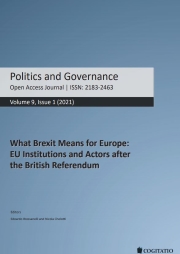Abstract
To what extent has Brexit affected Norwegians’ perceptions of their current relationship with the EU? What are the considerations that central political and societal actors bring up to explain their stances? What are the broader lessons for the EU’s relations with non-members? We argue that Norway’s EU affiliation is so close that we can draw on Catherine De Vries’ benchmark theory to assess whether Brexit affects Norwegians’ assessments of Norway’s relationship with the EU. We focus on the Norwegian government’s stance. Further, we consider opinion polls to understand the strength of domestic support for the EEA Agreement, and whether that support has changed as a consequence of Brexit. We thereafter look for political entrepreneurs or political change agents, in political parties, in interest groups, and among civil society activists. We find that Brexit has not served as a benchmark. It has not set in motion efforts to change Norway’s EU affiliation. Opponents diverge on alternatives, although share concerns about what they see as the EU’s neoliberal orientation. The analysis shows that we cannot assess Brexit as a benchmark without paying attention to the sheer size and magnitude of the EU–Norway power asymmetry.
Full info
John Erik Fossum and Joachim Vigrestad
Is the Grass Greener on the Other Side? Norwegians’ Assessments of Brexit
In: Politics and Governance, 2021
DOI: 10.17645/pag.v9i1.3713
